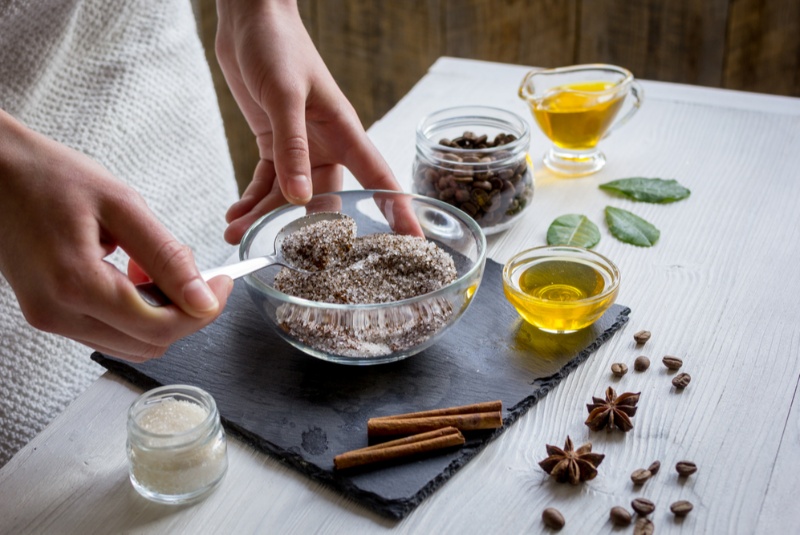Keeping your home clean doesn’t have to come with expensive store-bought products. Many commercial cleaners are pricey, filled with harsh chemicals, and often less effective than simple homemade alternatives. By making your own cleaning products, you can save money, reduce waste, and create a healthier home environment. With just a few inexpensive ingredients, you can tackle almost any mess—from countertops to floors—while keeping your budget intact.
Why Make Your Own Cleaning Products
DIY cleaning products aren’t just cheaper—they’re also safer and more sustainable.
-
Cost-effective: Basic ingredients like vinegar and baking soda cost pennies compared to $5–$10 commercial cleaners.
-
Healthier: You control the ingredients, avoiding harsh chemicals and artificial fragrances.
-
Eco-friendly: Less plastic packaging and harmful runoff going down the drain.
-
Customizable: Adjust scents, strength, and ingredients to suit your preferences.
Making your own cleaners takes little effort but can save hundreds of dollars each year.
Stock Up on Basic, Budget-Friendly Ingredients
A few versatile ingredients can handle nearly every cleaning task in your home. Keep these on hand to avoid buying specialized products:
-
White vinegar: Cuts grease, disinfects, and removes odors.
-
Baking soda: Acts as a gentle scrubber and deodorizer.
-
Castile soap: Plant-based liquid soap for general cleaning.
-
Hydrogen peroxide: Disinfects and whitens without bleach.
-
Lemon juice: Natural deodorizer and stain remover.
-
Essential oils: Add pleasant scents and mild antibacterial properties.
These staples cost far less than multiple specialized cleaners and can be used for countless purposes.
Make an All-Purpose Cleaner
An all-purpose cleaner can replace many expensive sprays for counters, appliances, and bathrooms.
Recipe:
-
1 cup white vinegar
-
1 cup water
-
1 tablespoon dish soap or castile soap
-
Optional: 10 drops essential oil (like lemon or lavender)
Mix in a spray bottle and use it for wiping down surfaces, sinks, and stovetops. For stone countertops, skip vinegar and use warm soapy water instead to avoid damaging the surface.
DIY Glass and Mirror Cleaner
Forget pricey glass cleaners—a homemade version works just as well.
Recipe:
-
1 cup water
-
1 cup vinegar
-
1 tablespoon cornstarch (for streak-free shine)
Spray on windows and mirrors, then wipe with a microfiber cloth or newspaper for a spotless finish.
Create Your Own Bathroom Cleaner
Bathrooms require powerful cleaning, but harsh store-bought chemicals aren’t the only solution.
For sinks and tubs:
-
Sprinkle baking soda on the surface.
-
Spray with vinegar until it fizzes.
-
Scrub with a sponge, then rinse.
For toilets:
-
Pour 1 cup baking soda and 1 cup vinegar into the bowl.
-
Let it fizz for 10 minutes, scrub with a toilet brush, and flush.
This natural combo removes soap scum, hard water stains, and odors at a fraction of the cost.
Make a Safe Floor Cleaner
Expensive mopping solutions aren’t necessary. Simple homemade mixtures work for most floors:
-
For tile or vinyl: Mix ½ cup vinegar with 1 gallon of warm water.
-
For hardwood: Use ¼ cup mild dish soap in a bucket of warm water (avoid vinegar to protect the finish).
Add a few drops of essential oil for a fresh scent while you mop.
Freshen Carpets and Rugs Naturally
Carpet fresheners can be costly and filled with synthetic fragrances. Make your own instead:
Recipe:
-
1 cup baking soda
-
10–15 drops essential oil
Sprinkle on carpets, let sit for 15 minutes, and vacuum. This absorbs odors and freshens the room without harmful chemicals.
DIY Laundry Detergent
Commercial laundry detergents can cost a lot over time. A homemade version saves money and works well for most machines:
Recipe:
-
1 cup washing soda
-
1 cup baking soda
-
1 cup grated bar soap (like Castile or unscented)
Mix and store in an airtight container. Use 2–3 tablespoons per load. Add white vinegar as a natural fabric softener.
Skip Fabric Fresheners—Make Your Own
Fabric sprays and dryer sheets can add up quickly. Try this instead:
Fabric freshening spray:
-
2 cups water
-
2 tablespoons baking soda
-
10 drops essential oil
Shake and spray on clothes, curtains, or upholstery. For the dryer, use wool dryer balls with a few drops of essential oil for a long-lasting scent.
Make a Natural Disinfectant
You don’t need harsh bleach for everyday disinfecting. Hydrogen peroxide and essential oils can get the job done.
Recipe:
-
1 cup water
-
1 cup hydrogen peroxide
-
20 drops tea tree or eucalyptus oil
Use on cutting boards, countertops, or doorknobs. Keep in a dark spray bottle to maintain effectiveness.
Repurpose Household Items as Cleaners
Before buying new products, check what you already have at home:
-
Lemon peels: Soak in vinegar for a few days to make a citrus-scented cleaner.
-
Old t-shirts: Turn into reusable cleaning rags instead of buying paper towels.
-
Coffee grounds: Scrub pots and pans or deodorize trash cans.
-
Olive oil: Shine and condition wood furniture naturally.
Repurposing reduces waste and saves on buying unnecessary cleaning tools.
Store and Label Your DIY Cleaners Properly
To avoid waste and confusion, store your homemade products in labeled spray bottles or jars.
-
Use clear labels with names and ingredients.
-
Keep solutions away from kids and pets.
-
Store vinegar-based cleaners in glass bottles if using essential oils, as they can react with plastic.
Proper storage keeps your DIY cleaners safe and effective for longer.
Common Mistakes to Avoid
-
Mixing incompatible ingredients: For example, never mix vinegar and bleach—it creates toxic fumes.
-
Skipping labels: Forgetting what’s in each bottle leads to waste or safety risks.
-
Making too much at once: Some solutions, like hydrogen peroxide mixtures, lose strength over time.
-
Overloading with essential oils: A few drops are enough; too much can cause irritation or leave residue.
Keeping it simple ensures your DIY cleaning stays safe and affordable.
You don’t need to spend a fortune to keep your home sparkling clean. With a handful of inexpensive ingredients like vinegar, baking soda, and castile soap, you can make effective DIY cleaning products that rival store-bought brands. By creating all-purpose sprays, floor solutions, laundry detergents, and natural disinfectants, you’ll cut household costs while reducing chemicals and waste. Small changes add up fast, making your home cleaner, safer, and much friendlier on your budget.




